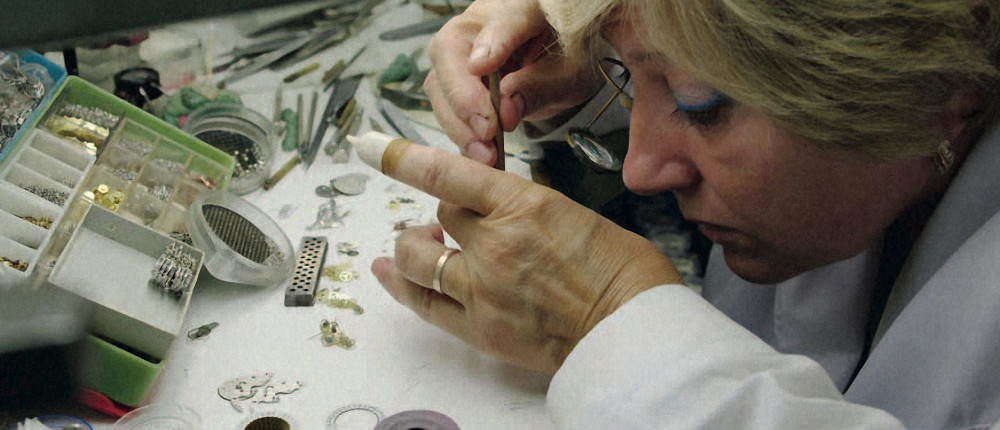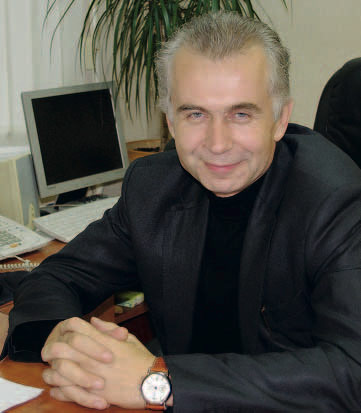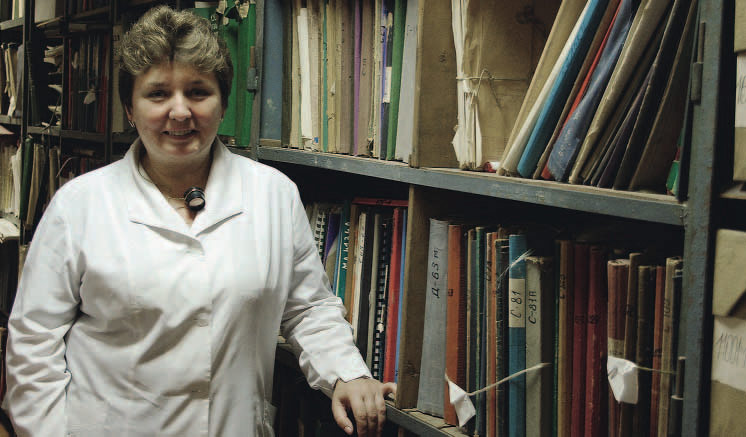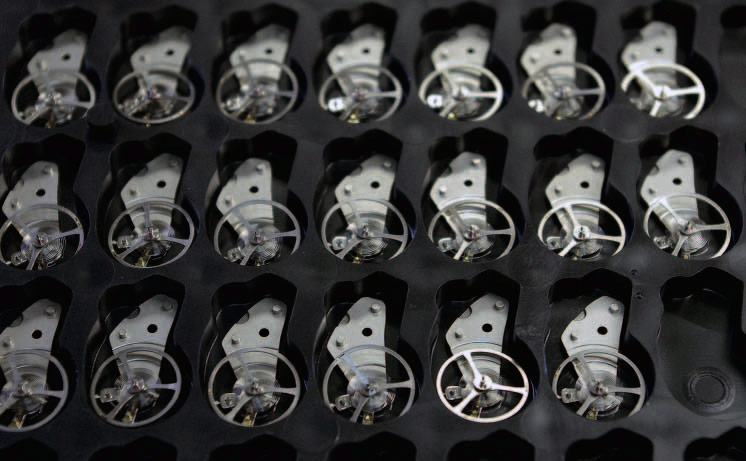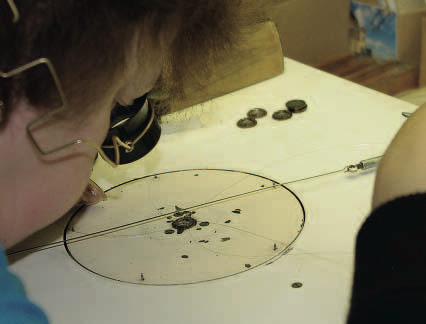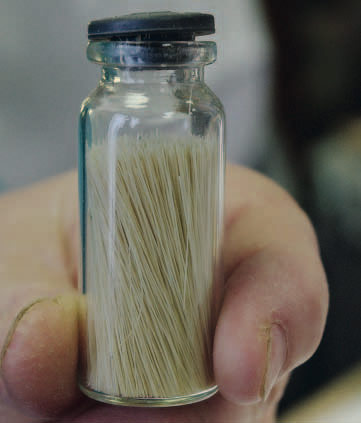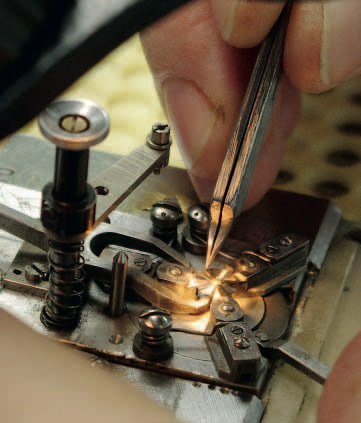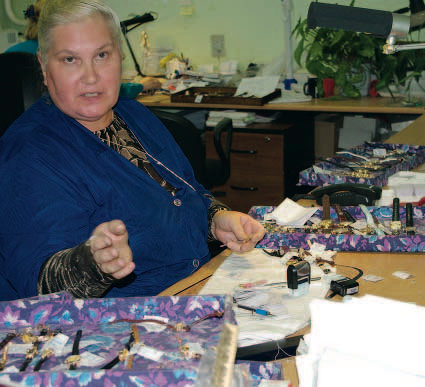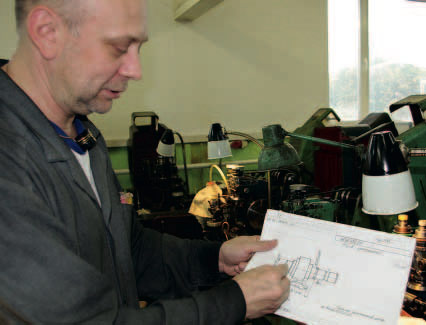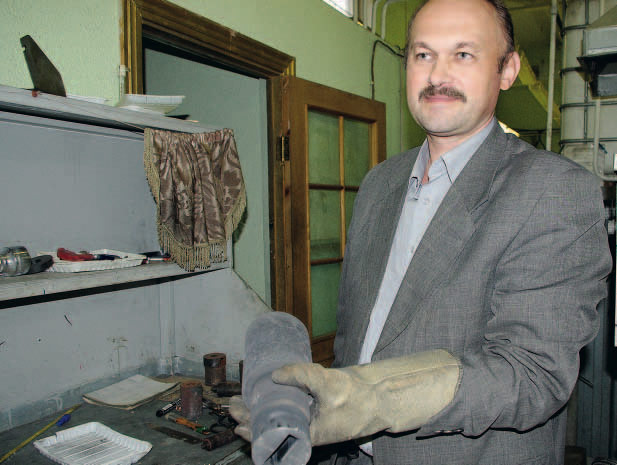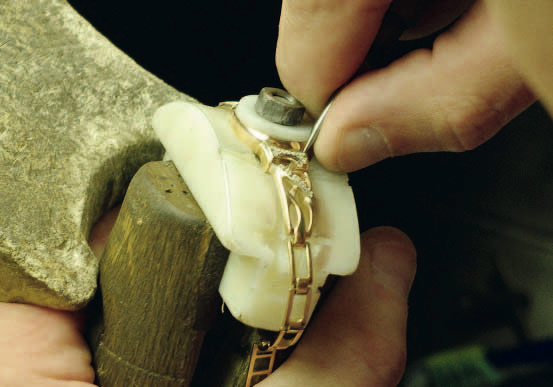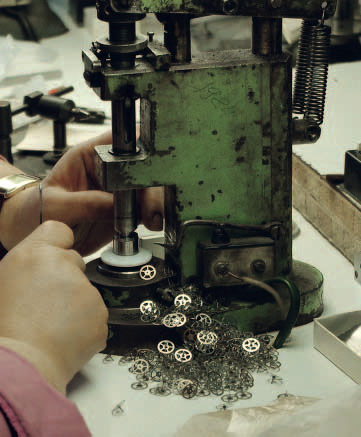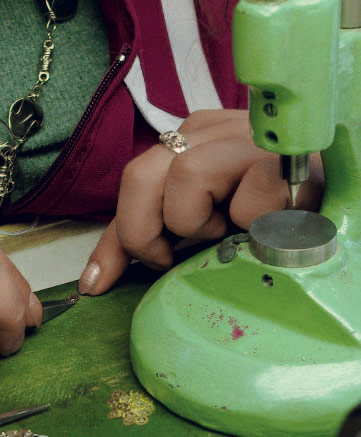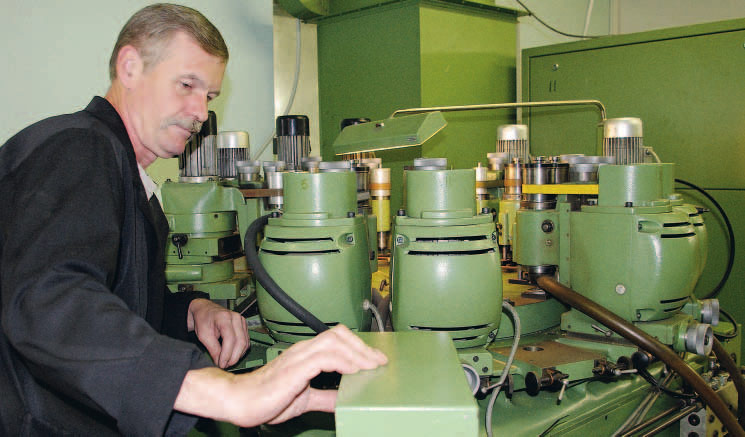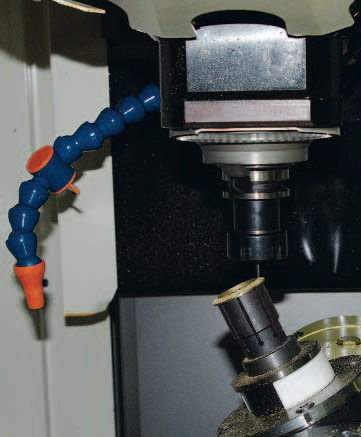In time, everything and nothing changes
MakTime — Factory report
Russian watches have a certain mythical quality. In fact, the former Soviet Union was once one of the major players in the watch industry. However, social upheaval brought about radical change and the new era was followed by a period of economic recession. As older companies disappeared, new ones emerged to take their place. One of these is Maktime, which brings together the expertise of former leading Russian watchmakers. UHREN-MAGAZIN went to visit the manufacturer in Moscow.
The process for gaining access to the Russian watch industry is very different from a visit to a Swiss manufacturer, or even the luxury German watchmaker Glashütte. For starters, you need a visa, which can only be obtained if you receive an official invitation from the manufacturer and have a hotel reservation confirmed in writing.
As if landing at Moscow’s Domodedovo airport wasn’t enough to get my adrenalin pumping, this is then followed by a crazy ride in a taxi, which nearly finishes me off. The driver pays cash on the spot for two nights at the hotel and then suggests that we meet up again here tomorrow morning at nine. Before I even have a chance to object, he’s gone…
Call for freedom
…. and then he’s nearly an hour late the next morning. It’s pouring with rain. He parks in an unpaved area by some sort of acoustic barrier. Through an opening in the barrier, I can see that there are several train tracks on the other side. The driver reacts to my look of bewilderment by frantically pointing in the direction of the tracks. A train rushes past. “Dawai”, he says politely, which basically means “Come on!” and then we “calmly” cross the road bed. It’s hard to believe that a watch-making factory actually lies behind a second wall, which this time features an encoded lock set into a “bomb-proof” door and is followed by rigorous security checks. It’s equally hard to accept that the official, and in fact only, way to access the factory is to take the path over the tracks. I am greeted by Alexander Makarov, who, according to his business card, is the Chief Executive. He gives me Russian tea, a mischievous smile and the promise that he will spend the whole day with me. The telephone rings. One moment please. Duty calls…
Alexander Makarov is not only the manager of the family-run business Maktime; he also co-owns the company with his brother Vjacheslav. Whereas Alexander is the business graduate, Vjacheslav is the development engineer. The two watch enthusiasts set up their factory in 1996, initially to manufacture cases, which is still one of their key skills. These would then be used to encase movements and sold as watches. “We got a taste of freedom,” recalls Alexander Makarov, “and the chance to make some money.” Business was initially confined to Russia, with international trade starting much later in 2005, when the company acquired the production line for the chronograph calibre 3133 from the crumbling First Moscow Watch Factory (Poljot); a factory where Alexander Makarov once worked as head of sales. Prior to this, in 2003, Maktime had also purchased a majority share of the Zarja watch factory in Penza,
Alexander Makarov, Managing Director of Maktime,
who founded the watch factory with his brother in 1996.
a city that lies several hundred kilometres to the southeast of Moscow. By this time, the factory was already inactive.
Maktime relaunched production and the company started manufacturing models such as the 1509, 2009 and 2014 three-hand movements at this site and then, later on, parts for the 3133. Maktime acquired equipment and staff from both Poljot and Zarja. Today, the company has 700 employees, 350 of which work at the original site in Moscow, while the other 350 are based at the Penza factory.
In 2006, Maktime also acquired shares in the Second Moscow Watch Factory (Slava). However, production is currently on hold here, although several members of staff have found work at Maktime in the Russian capital or in Penza.
An icon in a time of change
According to Alexander Makarov, the company currently manufactures around 100,000 watches and 90,000 movements per year. Whereas the timepieces themselves don’t tend to be sold outside of Russia, Maktime also receive orders from abroad for its watch movements, for instance from countries such as Germany, Portugal, Holland and Italy. The company also supplies Russian brands with watch movements, with examples including Buran and Aviator. However, you are currently unlikely to find Poljot as a brand name, as Maktime did not inherit this from the First Moscow Watch Factory, much to the company’s regret. It actually belongs to a renowned Russian money oligarchy. Alexander Makarov explains how attempts to secure the trademark rights has so far been unsuccessful. However, he also says very little about the news that the owners of the trademark want to start producing in Switzerland under this label. So, the iconic Russian calibre is still produced by Maktime, but now bears only the number 3133 and not the Poljot name.
Insiders will know that this calibre is based on the Swiss Valjoux hand-wound chronograph movement known as the 7734. When the Swiss manufacturer ceased producing the movement in 1974, the Moscow-based watchmakers Poljot purchased all rights to this, including the machinery and tools, and created the Poljot calibre 3133. To this very day, it is still made in exactly the same way, aside from a few changes, which include a smaller balance wheel but higher frequency, the addition of its own shock protection feature and a quick-set date function. Over time,
Maktime has acquired the machinery needed for this. There are also several different variations, for instance the 31682 has a 24-hour display and the 31679 features a moon phase dial, while the sleek 3105 model has no chronograph movement.
Tatjana Malik, the MakTime Production Manager :
benefits from years of experience and has full control over her department.

